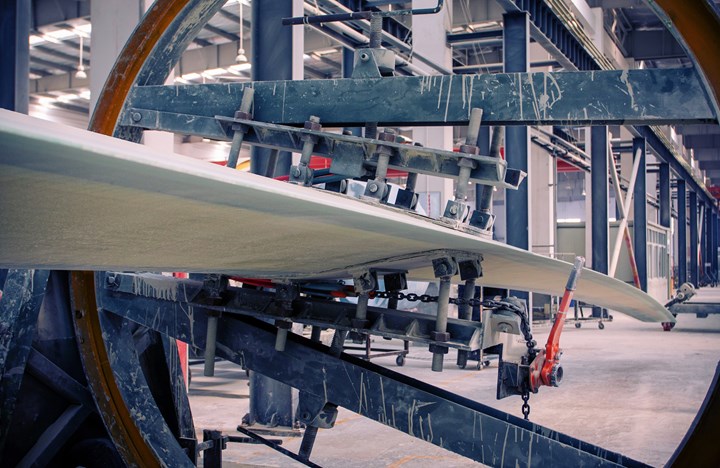TPI, WindSTAR create digital twin for wind blade manufacturing
Machine learning framework provides real-time feedback during composite fabrication process, with some cases achieving 95% predictive accuracy and computation faster than physics-based simulations.
TPI Composites Inc. (TPI, Scottsdale, Ariz., U.S.) has collaborated with the Center for Wind Energy Science, Technology and Research (WindSTAR, Alexandria, Va., U.S.), a National Science Foundation (NSF)-funded Industry-University Cooperative Research Center (IUCRC), to design a composite manufacturing process based on a digital twin approach as released in the 2022 WindSTAR Annual Report. The project leveraged machine learning (ML) using big data to serve as the digital twin of the blade manufacturing process. This ML framework provides real-time feedback during fabrication, results in reduced defects and enables more efficient production of wind blades versus the current high computational costs of the physics-based models.
Stephen Nolet, senior director of Innovation and Technology for TPI, worked alongside student researchers and faculty from the University of Texas at Dallas, as well as technical experts from Olin Epoxy (Midland, Mich., U.S.) and Westlake Epoxy (Stafford, Texas, U.S.) to develop a framework for the digital twin of the vacuum-assisted resin infusion molding (VARIM) process. By applying an ML approach, the team achieved predictive accuracy of more than 95% with 100-times faster computation than the physics-based simulations.
“The primary value of utilizing a ML framework is leveraging historical results and data to inform current manufacturing at a pace that significantly reduces defects from occurring in a real-time production environment,” Nolet explains. “Additionally, this technology allows users to create alternative manufacturing scenarios to increase production velocity in manufacturing operations while simultaneously reducing infusion-related problems.”
In the coming year, the WindSTAR research team plans to focus on scaling the technology to larger components with greater manufacturing complexity. The work will apply tools taken from artificial intelligence (AI) to find patterns in historical data and predict outcomes on full-scale wind blade components including blade shells.
TPI is an inaugural member of the WindSTAR IUCRC Industrial Advisory Board and is looking forward to contributing to more exciting projects as it enters its ninth year of partnership together in 2023. The WindSTAR Center is operated jointly by the University of Massachusetts Lowell and the University of Texas Dallas and supported by 18 industry members, including TPI.
Related Content
-
Composite sidewall cover expands options for fire-safe rail components
R&D project by CG Rail explores use of carbon fiber-reinforced thermoplastics and recycled manufacturing scrap to meet fire safety, weight and volume targets.
-
Bladder-assisted compression molding derivative produces complex, autoclave-quality automotive parts
HP Composites’ AirPower technology enables high-rate CFRP roof production with 50% energy savings for the Maserati MC20.
-
Nine factors to consider when designing composites cure tooling
Gary Bond discusses the common pitfalls and compromises when designing good cure tooling and their holistic significance for a robust composite production process.

















